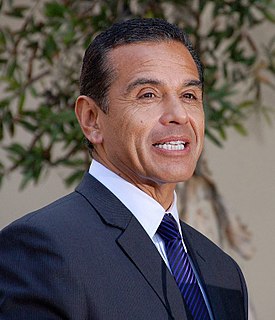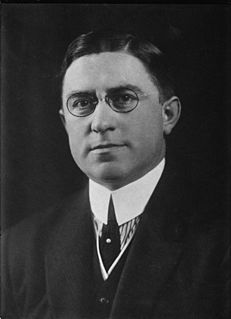Top 667 Manufacturing Quotes & Sayings - Page 11
Explore popular Manufacturing quotes.
Last updated on November 25, 2024.
Nom de Plume uses the device of the pseudonym to unite the likes of Charlotte Bronte, Mark Twain, Fernando Pessoa, and Patricia Highsmith into a cohesive yet highly idiosyncratic literary history. Each page affords sparkling facts and valuable insights onto the manufacturing of books and reputations, the keeping and revealing of secrets, the vagaries of private life and public opinion, and the eternally mysterious, often tormented interface between life and literature.
Jobs is the one area where I think Donald Trump is striking a chord that really resonates and should resonate. Both parties need to do a better job of rejecting poorly negotiated trade agreements. And I would put the president's TPP, the Trans-Pacific Partnership agreement, in that category. We have lost thousands of manufacturing jobs just in the state of Maine alone, and that resonates with people, and understandably so.
I want to get the economy going again. It's not just enough about what we're against, as important as that is. I have a plan to create new jobs, manufacturing, infrastructure, clean energy jobs that will make us the 21st century clean energy super power. I also want to make sure small businesses can start and grow again.
That is certainly the promise of [Donald Trump] campaign and the promise of his economic program.This economic program is really the pickup truck of economic programs. It's the Ford F-150 of economic programs. It's about manufacturing. It's about oil, fossil fuels. It's a deliberate, forceful reassertion of an image of American industrialism that we have inherited from the 20th century.
History--the product, not the raw material--is a bottle with a label. For many years now, the emphasis of historical discussion has been laid upon the label (its iconography, its target-group of customers) and upon the interesting problems of manufacturing bottle-glass. The contents, on the other hand, are tasted in a knowing, perfunctory way and then spat out again. Only amateurs swallow them.
Justification by grace through faith' is the theologian's learned phrase for what Chesterton once called 'the furious love of G-d.' He is not moody or capricious; He knows no seasons of change. He has a single relentless stance toward us: He loves us. He is the only G-d man has ever heard of who loves sinners. False gods- the gods of human manufacturing- despise sinners, but the Father of (Yeshua) loves all, no matter what they do.
It was an easy thing to tax for a young country. And then gradually we moved to property taxes, manufacturing taxes, and the income tax was the answer to a populist demand: Let's go after the rich guys. We got into World War I, and they raised the rates and started taxing the rich. Then we got into World War II, and that's when they taxed everybody, because they just needed more revenue.
When we spoke about workplaces in 1972 we mainly were referring to old-line manufacturing firms, on the one hand, and Main St. shops and restaurants, on the other. Both of those categories are now insignificant in terms of employment. Today, the economy is dominated by the rapidly growing Low-Cost Operators - national discount and mall chain stores, fast food franchises and supermarkets - which offer employees low salaries, few benefits and little training.
Senator Allen has long been a leader on competitiveness issues in the Senate and as governor of Virginia. His announcement of the Competitiveness Caucus comes as great news to the nation's manufacturers. We support every item on this agenda and will work with Senator Allen and others to make it a reality. The time has come for Congress to recognize the vital role manufacturing plays in American life and do what it can to strengthen our ability to compete in the global marketplace.
We might sometimes reflect and recall that the purpose of all our science, technology, industry, manufacturing, commerce, and finance is celebration, planetary celebration. This is what moves the stars through the heavens and the earth through its seasons. The final norm of judgment concerning the success or failure of our technologies is the extent to which they enable us to participate more fully in this grand festival.
The way AI complements people's work, it actually creates a lot of new jobs, a lot of demand. For example, if a automatic visual inspection technology helps spot flaws in manufacturing parts, I think that in some cases, this does create a lot more demand for people to come in to rework or to fix some of the parts that an AI has found to be flawed.
[T]he most common and durable source of factions has been the various and unequal distribution of property. Those who hold and those who are without property have ever formed distinct interests in society. Those who are creditors, and those who are debtors, fall under a like discrimination. A landed interest, a manufacturing interest, a mercantile interest, a moneyed interest, with many lesser interests, grow up of necessity in civilized nations, and divide them into different classes, actuated by different sentiments and views.
It is very difficult to understand why in this country [India] so much difference is made between men and women, whereas the Vedanta declares that one and the same conscious Self is present in all beings. You always criticize the women, but say what have you done for their uplift? Writing down Smritis etc., and binding them by hard rules, the men have turned the women into manufacturing machines! If you do not raise the women, who are living embodiment of the Divine Mother, don’t think that you have any other way to rise.
Astonishingly, American taxpayers now will be forced to finance a multi-billion dollar jobs program in Iraq. Suddenly the war is about jobs. We export our manufacturing jobs to Asia, and now we plan to export our welfare jobs to Iraq, all at the expense of the poor and the middle class here at home.
There's an old saying - you'll never hit a target you can't see. Defining a Creative Challenge is an important step in focusing your creativity toward a specific problem or opportunity. A Creative Challenge can be something big such as a revolutionary new product or a cure for disease. However, it can also be much smaller such as a new package design or an efficiency gain in a manufacturing process. It starts with clearly defining the challenge and desired outcome.
When you bring in multi-brand retail items into the country, you're not just bringing the products, but you're also harming local manufacturers. You must strengthen your manufacturing sector and put it on a level playing field with the world. Any kind of items manufactured globally, like small pens, pencils, notebooks - our manufactured goods need to be on a level playing field. Then let them come. Have a competition.
You cannot just depend on the market, because the market will say: China needs oil; China needs coal; China needs whatever, and Africa has got all these things in abundance. And we go there and get them, and the more we develop the Chinese economy, the larger the manufacturing is, the more we need global markets - sell it to the Africans which indeed might very well destroy whatever infant industries are trying to develop on the continent. That is what the market would do.
Only dramatic cuts in the federal deficit, a rollback of regulations that cripple small and community banks, a cancellation of future tax increase plans, a big reduction in federal spending, repeal of Obamacare, freeing manufacturing from the prospect of carbon taxation and unleashing out domestic energy potential can solve our problems. But Obama is not about to undo his legacy of disaster for the American people.
Living through the 1929 Great Depression helped shape my social conscience. During this time, I realized the earth was still the same place, manufacturing plants were still intact, and resources were still there, but people didn’t have money to buy the products. I felt the rules of the game we play by were outmoded and damaging. This began a life-long quest resulting in the conclusions and designs presented in The Venus Project.
Caterpillar was quite important because that was the first manufacturing industry that used Reaganite strike-breaking techniques. They illegally called in scabs to break a major strike. It was reported pretty well in the Chicago Tribune, who pointed out something very interesting. They said that the workers got very little support in Peoria when scabs illegally broke the strike, and that was particularly striking because that whole community had been built up by the union - it was a union-based community.
President Trump was determined to replace NAFTA from the day he took office. It reflected the old way of trade deals in which our partners shirked labor protections while American companies shipped operations and jobs to cheaper foreign locations. Our factories shuttered, our manufacturing shrank, and we grew more dependent on foreign suppliers.
I think the work on tax reform, the work that's being done on regulatory reform is very important. And just having a seat at the table, I think, is so important for business today as we think about what's going to benefit the economy of this country, how we're going to create great manufacturing jobs.
We have to go from what is essentially an industrial model of education, a manufacturing model, which is based on linearity and conformity and batching people. We have to move to a model that is based more on principles of agriculture. We have to recognize that human flourishing is not a mechanical process; it's an organic process. And you cannot predict the outcome of human development. All you can do, like a farmer, is create the conditions under which they will begin to flourish.
Yes I usually make my kids eat their veggie chops and watch my concerts in dead silence. If they ask to watch spongebob squarepants I usually do something volatile like make them eat a yellow sponge with googly eyes on it. I hit them quite a bit, but then again I blame the condom manufacturing government for forcing me to birth them.
I made two rings for myself and when I was in Los Angeles, I walked into a store called Maxfields and they essentially bought them off my hands. Those were originally made in New York. There wasn't craftsmanship, there was just manufacturing, and I wasn't interested in doing that. My first workshop was in Rome, and that was the start of House of Waris. In a little magical atelier, a goldsmith, his apprentice, his stone setter - and that was where it began.
Authority never matches responsibility. That's one of the great myths and delusions of all times. Winning managers and individual performers at all levels know that effectiveness means building your own network and creating your own authority. Those who succeed always reach far beyond formal deputation, take initiatives, and take the heat when things go awry. That's true in the military in times of war, true for 200 person manufacturing firms, and true at giant automakers or software companies.
If you talk privately to our tech companies, our pharmaceutical companies, our high-end manufacturing companies, the high end of America, where the good-paying jobs are, China is not letting them in unless China gets to steal their intellectual property in a company that`s 51 percent owned by the Chinese.
The question of whether a device will come into being depends upon three things: first, whether there is a practical use for it that warrants its development and manufacturing costs; second, whether the laws of physics applying to the elements available for its design allow the attainment of the needed ranges, sensitivities, or the like; and third, whether the pertinent art of manufacture has advanced sufficiently to allow a useful embodiment to be built successfully.
The manufacturing industry is starting to press for some kind of national healthcare. Now it's beginning to put it on the agenda. It doesn't matter if the population wants it. What 90% of the population wants would be kind of irrelevant. But if part of the concentration of corporate capital that basically runs the country - another thing we're not allowed to say but it's obvious - if part of that sector becomes in favor then the issue moves onto the political agenda.
Home Star is a common sense idea that would create jobs and provide a boost to local economies, while helping families afford their energy bills. By encouraging homeowners to invest in energy efficiency retrofits, Home Star would create 170,000 manufacturing and construction jobs that could not be outsourced to China.
The Golden State has lost its luster. We've got to change our tax system and how we fund government. We're going to have to make it easier to create jobs in California, incentivize manufacturing, really put more in the way of investment in our public school system and our institutions of higher learning if we're going to stay the Golden State.
It seemed a marvel to her that any mortal should suffer for lack of love, and yet she had never known a mortal who didn't feel unloved. There was enough love just in this ugly hallway, she thought, that no one should ever feel the lack of it again. She peered at the parents, imagining their hearts like machines, manufacturing surfeit upon surfeit of love for their children, and then wondered how something could be so awesome and so utterly powerless.
We have to acknowledge that we can't look to manufacturing or natural resources to drive growth like we have in the past. Human capital, talent, and knowledge are our most important resources now. Every city has hidden seeds of opportunity waiting to be nurtured. Places like Detroit, Cleveland, and Pittsburgh are among my favorite cities. They have great universities, clusters of innovation across a range of industries, and pools of innovative and creative talent to build on.
The most important, and indeed the truly unique, contribution of management in the 20th century was the fifty-fold increase in the productivity of the MANUAL WORKER in manufacturing. The most important contribution management needs to make in the 21st century is similarly to increase the productivity of KNOWLEDGE WORK and the KNOWLEDGE WORKER.
To be free one needs constant and unrelenting vigilance over one's weaknesses. A vigilance which requires a moral energy most of us are incapable of manufacturing. We relax back into the moulds of habit. They are secure, they bind us and keep us contained at the expense of freedom. To break the moulds, to be heedless of the seductions of security is an impossible struggle, but one of the few that count. To be free is to learn, to test yourself constantly, to gamble.
The economy, virtually all the new income has gone to the top 10 percent, and we need to find those areas where we can actually make a change in that. And that includes enhancing manufacturing jobs in this country, it includes the ability to go to community college for free, it includes the ability to have debt-free higher education, it includes career technical education in our high schools. It also includes taking on the pharmaceutical companies on the extravagant prices that they`re charging for the drugs. Americans need to stay healthy.
...there's no such thing as sustainability. There are just levels of it. It's a process, not a real goal. All you can do is work toward it. There's no such thing as any sustainable economy. The only thing I know that's even close to sustainable economic activity would be organic farming on a very small scale or hunting and gathering on a very small scale. And manufacturing, you end up with way more waste than you end up with finished product. It's totally unsustainable. It's just the way it is.
I think there ought to be some serious discussion by smart people, really smart people, about whether or not proliferation of things like The Smoking Gun and TMZ and YouTube and the whole celebrity culture is healthy. We've switched from a culture that was interested in manufacturing, economics, politics - trying to play a serious part in the world - to a culture that's really entertainment-based. I mean, I know people who can tell you who won the last four seasons on American Idol and they don't know who their [bleeping] Representatives are.
If you run for election with a particular agenda about saving jobs, about strengthening manufacturing and farming jobs, about tackling predatory gambling and making governments accountable, if there's an opportunity to achieve that agenda with either side of politics, particularly if you come from the political centre, then it's an opportunity you should take up.
My very first venture was a national student magazine to try to campaign against the [Vietnam] War. And so I wanted to be an editor. I wanted to bring the magazine out. And in order for the magazine to survive I had to worry about the printing and the paper manufacturing and the distribution. And, you know, I had to try to, at the end of the year, have more money coming in than going out.
I am firmly opposed to the government entering into any business the major purpose of which is competition with our citizens... for the Federal Government deliberately to go out to build up and expand... a power and manufacturing business is to break down the initiative and enterprise of the American people; it is the destruction of equality of opportunity amongst our people, it is the negation of the ideals upon which our civilization has been based.
The Federal Reserve Bank of New York is eager to enter into close relationship with the Bank for International Settlements....The conclusion is impossible to escape that the State and Treasury Departments are willing to pool the banking system of Europe and America, setting up a world financial power independent of and above the Government of the United States....The United States under present conditions will be transformed from the most active of manufacturing nations into a consuming and importing nation with a balance of trade against it.
The tax that was supposed to soak the rich has instead soaked America. The beneficiary of the income tax has not been the poor, but big government. The income tax has given us a government bureaucracy that outnumbers the manufacturing work force. It has created welfare dependencies that have entrapped millions of Americans in an underclass that is forced to live a sordid existence of trading votes for government handouts.
I want us to invest in you. I want us to invest in your future. That means jobs in infrastructure, in advanced manufacturing, innovation and technology, clean, renewable energy, and small business, because most of the new jobs will come from small business. We also have to make the economy fairer. That starts with raising the national minimum wage and also guarantee, finally, equal pay for women's work.
Why do we send valuable items like aluminium and food waste to landfill when we can turn them into new cans and renewable energy? Why use more resources than we need to in manufacturing? We must now work together to build a zero waste nation - where we reduce the resources we use, reuse and recycle all that we can and only landfill things that have absolutely no other use
The creative person wants to be a know-it-all. He wants to know about all kinds of things-ancient history, nineteenth century mathematics, current manufacturing techniques, hog futures. Because he never knows when these ideas might come together to form a new idea. It may happen six minutes later, or six months, or six years. But he has faith that it will happen.
Buy products of genuine lasting value from brands that take their manufacturing seriously. I have things that are 75 years old, like the dinner suit of my grandfather's that was made in 1933 by a tailor in Edinburgh. Clothes develop stories. You can remember where you've been through clothing that you've worn. I want products that are going to endure. I hate that we buy things that are disposable. We need to buy products with integrity.
The problem is not gun possession; the problem is manufacturing guns - who's making these guns and how they gettin' out on the street? There shouldn't even be guns for us to possess. If there wasn't any, then it wouldn't be a problem. So we need to go to the source of the problem. They're making all these wars so they can make more weapons and sell them, and they wanna kill more people - they need population control,'cause people have to die in order for this world to continue. That's the government's goal right now.
The evidence from both approaches, statistical and experimental, does not appear sufficiently significant to me to warrant forsaking the pleasure of smoking. As a matter of fact, if the investigations had been pointed toward some material that I thoroughly dislike, such as parsnips, I still would not feel that evidence of the type presented constituted a reasonable excuse for eliminating the things from my diet. I will still continue to smoke, and if the tobacco companies cease manufacturing their product, I will revert to sweet fern and grape leaves.
Most Americans are aware of the brutality and injustice used to maintain the excesses of their selfish consumer society and empire. Yet I suspect...they do not care. They don’t want to see what is done in their name. They do not want to look at the rows of flag-draped coffins, the horribly maimed bodies and faces of veterans, or the human suffering in the blighted and deserted former manufacturing centers. It is too upsetting. Government and corporate censorship is therefore welcomed and appreciated.
Making information free is survivable so long as only limited numbers of people are disenfranchised. As much as it pains me to say so, we can survive if we only destroy the middle classes of musicians, journalists, and photographers. What is not survivable is the additional destruction of the middle classes in transportation, manufacturing, energy, office work, education, and health care. And all that destruction will come surely enough if the dominant idea of an information economy isn't improved.
























































